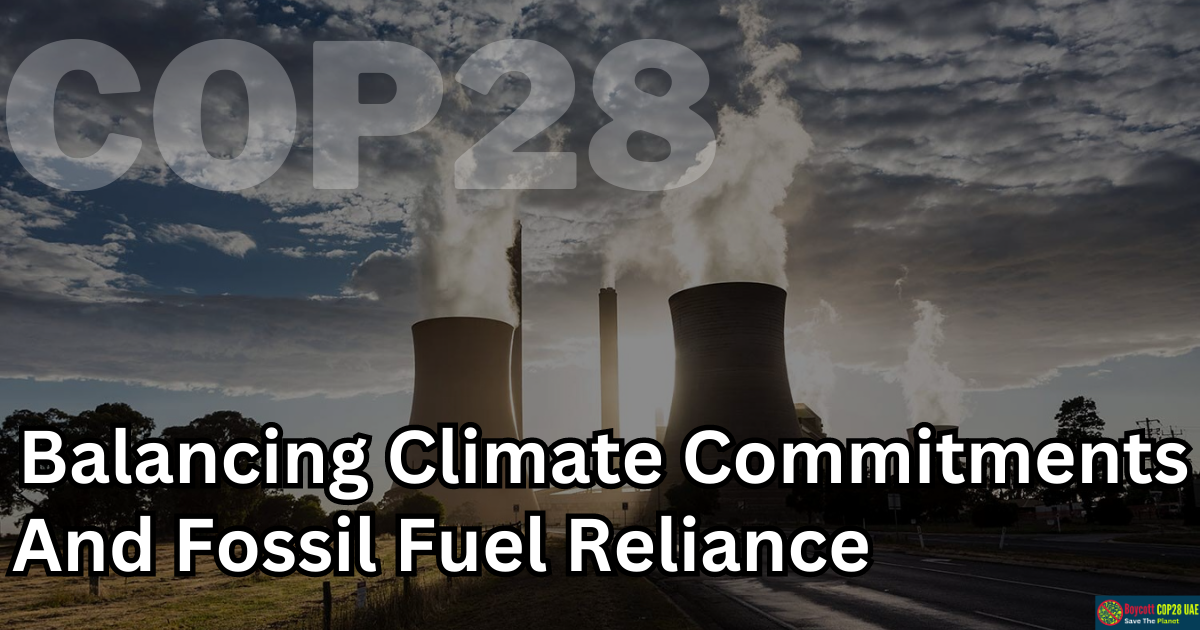As the world grapples with the urgency of climate action, the announcement that Sultan Al Jaber, chief executive of the United Arab Emirates’ state oil company Adnoc, will preside over the upcoming UN climate summit, COP28, raises eyebrows and concerns. This paradoxical situation highlights the contradictions between the UAE’s role as a host for global climate discussions and its continued reliance on oil industries and fossil fuels, contributing to higher pollution levels and hampering genuine progress towards sustainable solutions.
Scheduled to take place from November 30 to December 12, 2023, COP28 comes at a critical juncture. The International Panel on Climate Change’s (IPCC) Synthesis Report, released in March 2023, underscores the impending climate crisis and the need for swift, meaningful action.
As the occurrence of severe weather events grows more frequent and with over 3 billion individuals residing in regions highly susceptible to the consequences of climate change, the international society acknowledges the significance of reducing emissions to restrain global temperature rises within the 1.5°C threshold, as stipulated in the Paris Agreement.
The UAE’s selection as the host for COP28 carries significant irony. A country known for its opulent architecture and technological marvels, it also holds one of the highest pollution rankings, fueled largely by its oil and gas industries. The very sectors that contribute to the country’s wealth and prosperity are also the culprits behind a substantial portion of worldwide
greenhouse gas emissions.
One of the central concerns surrounding Sultan Al Jaber’s leadership in COP28 is the UAE’s history of failing to transparently report methane emissions. Methane, a potent greenhouse gas, has contributed significantly to the planet’s warming. It is concerning that the chief executive of a state oil company, Adnoc, which reportedly failed to report its methane emissions to the United Nations for nearly a decade, is chosen to oversee discussions aimed at combating climate change.
While the UAE has outwardly pledged to address its environmental impact and reduce fossil fuel dependencies, the reality is more complex. In 2022, Adnoc announced an ambitious goal of limiting methane emissions to 0.15% of total gas production by 2025, a notable commitment for the region. However, this pledge only considers emissions from the company’s operations, conveniently sidestepping the emissions released when the oil and gas are burned.
Critics argue that the UAE’s plans to expand its oil and gas production are at odds with the principles of COP28. The country’s public stance on transitioning away from fossil fuels appears incongruent with its ongoing investments in these industries. Such paradoxes lead to skepticism about Al Jaber’s capacity to effectively guide the discussions and drive meaningful change at the climate summit.
Sultan Al Jaber’s insistence that a transition from fossil fuels is inevitable and essential echoes
sentiments shared by many. However, the challenge lies in the pace and dedication of this transition. While he acknowledges the need for change, Al Jaber’s statements lack a concrete timeline or actionable steps toward renewable energy adoption. The transition is undoubtedly complex, but they risk being perceived as mere rhetoric without clear commitments and targets.
Moreover, allegations of greenwashing and attempts to enhance Al Jaber’s image raise concerns about the authenticity of the UAE’s commitment to climate action. Accusations that quotes were added to Al Jaber’s Wikipedia page to emphasize his role in Adnoc and its alleged positive impacts on climate change only add to the skepticism surrounding his leadership.
In response to these concerns, over 130 lawmakers from the USA and Europe have penned an open letter to the UN, the EU Commission President, and the US President, urging the removal of Al Jaber from his position as COP28 President-Designate. This international call for change highlights the importance of ensuring the summit’s leadership is aligned with genuine efforts to combat climate change and does not compromise the credibility of the discussions.
Final Words
As COP28 approaches, the world watches with anticipation and scrutiny. The UAE’s choice to host this critical event brings its own set of challenges and paradoxes. While the country’s impressive technological feats stand as symbols of progress, its continued reliance on fossil fuels and inadequate transparency about emissions detract from its potential to be a true leader in the fight against climate change. The global community looks to COP28 not only for groundbreaking solutions but also for consistency and sincerity in its leadership – qualities that are paramount in addressing the urgent climate crisis.






